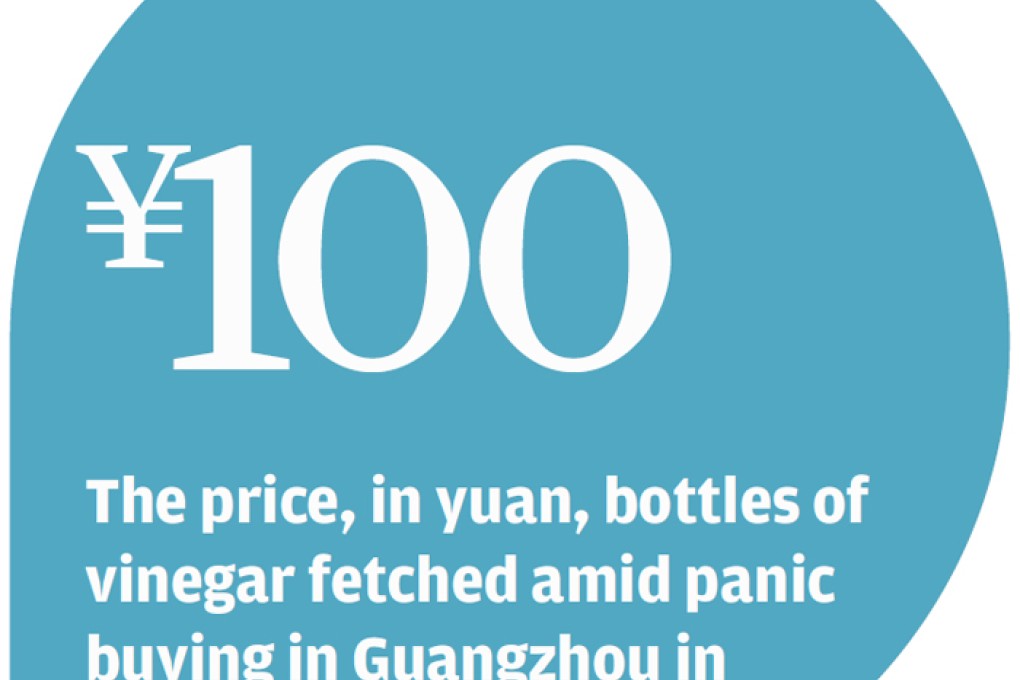When Sars first spread, Guangzhou residents sought out vinegar
When 20 people were approached at random in Guangzhou and asked what first comes to mind when they think about Sars, 15 said vinegar. Four mentioned the isatis root, a Chinese medicine rumoured to be useful against Sars and one mentioned civet cats, which hosted the Sars virus and transmitted it to humans.

While most memories of the Sars outbreak in 2003 have faded with time, there is one word many people in the Pearl River Delta instantly associate with that time - vinegar.

They recall when there were reports of a mystery illness spreading but silence from the government. Rumours that vinegar fumes could ward off the disease took hold.
"I still remember my daughter calling me suddenly on the first working day after the Lunar New Year holiday that year," said Zhu Yinghua, a 61-year-old retired teacher.
"She sounded scared and urged me to shop for vinegar and medicine called roxithromycin [an antibiotic]."
"I still remember I was disapproving at first, but soon felt panic with my daughter crying on the phone and yelling 'Mum, people are dying in Guangzhou from an unknown but horrible disease … don't waste time. Just go buy some'," Zhu said.
"I soon found that my daughter was right. When I went to a supermarket, many people were already buying vinegar."